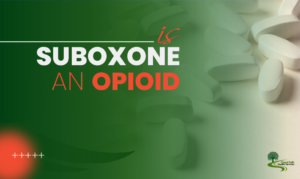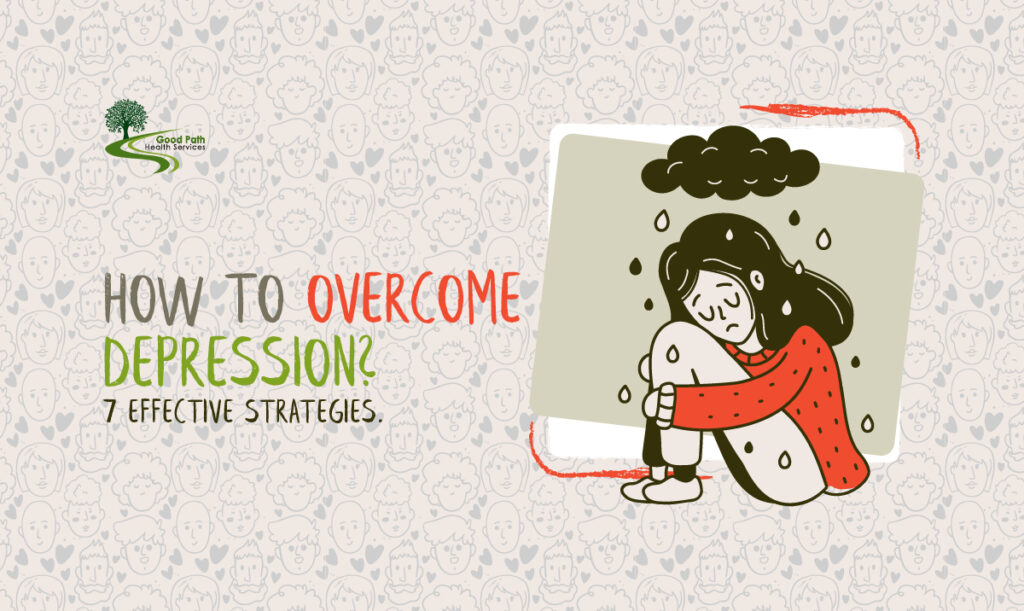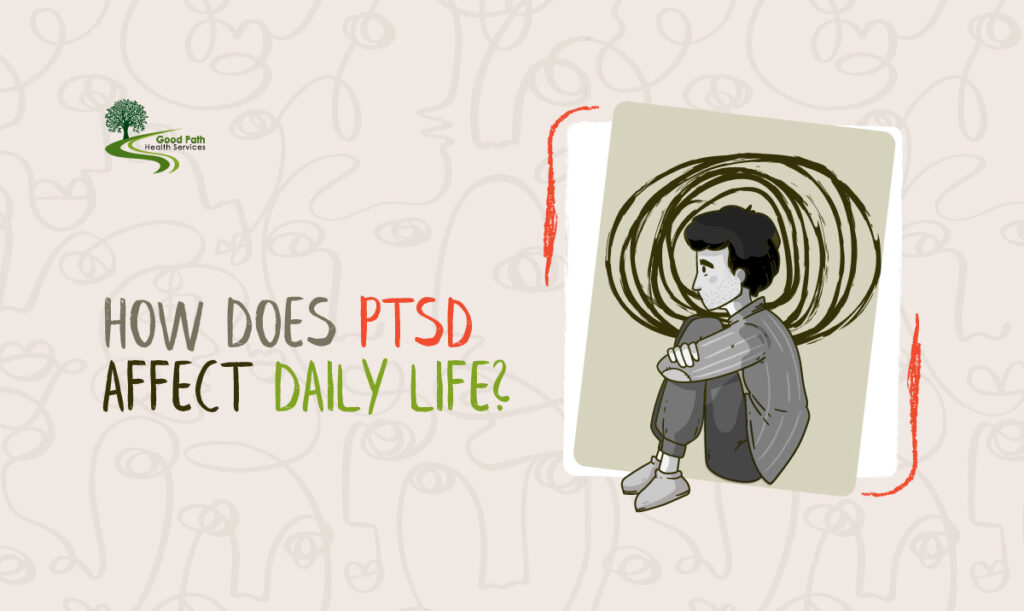
The use of Suboxone for opioid addiction recovery has raised a lot of interest recently.
As the opioid crisis worsens in communities, it’s important to realize the value of medications like Suboxone in fighting opioid addiction.
Many people wonder, “Is Suboxone an opioid?” To put it simply, yes, it does fall under that category.
Here’s what you should know: It contains buprenorphine, a partial opioid agonist, but it doesn’t pack the same potency as its full agonist counterparts like heroin or oxycodone.
Below, we will discuss the topic thoroughly and explore the facts surrounding Suboxone.
Suboxone
If you’ve been curious about Suboxone and want to learn more about it, let us give you a brief overview.
To begin with, Suboxone is the name of an FDA-approved medication that has buprenorphine and naloxone.
The medication is used to treat opioid use disorder – OUD.
In Subuxone, buprenorphine is a partial opioid agonist.
This means that it attaches to opioid receptors in the brain, but has less intense effects than full opioid agonists like heroin or oxycodone.
Naloxone is an opioid antagonist that blocks the effects of opioids and inhibits misuse of Suboxone.
The Opioid Crisis
To fully grasp Suboxone and what it can do for addiction recovery, it’s necessary to understand the crisis caused by opioids.
Lately, opioid addiction has reached alarming levels, and has incited a number of overdoses and deaths.
Overprescribing opioid painkillers and the spread of illegal opioids like heroin and fentanyl are driving the current public health threat.
The focus has been on harm reduction, minimization, and evidence-based measures against the opioid crisis.
Related: How Long Does Suboxone Block Opiates?
Is Suboxone an Opioid?
Now, let’s answer the question at hand: Is Suboxone an opioid? The short answer is yes but with a very important distinction.
Suboxone includes buprenorphine — it’s classified as a Schedule III controlled substance because of its opioid properties.
Nonetheless, Suboxone is half an opioid agonist, meaning its effects are milder and less likely to cause euphoria or overdose than full opioid agonists.
The Lowdown on How Suboxone Works
Ever wonder, “How long does it take for Suboxone to kick in?” or “How long does Suboxone work?”
Buprenorphine, the active ingredient in Suboxone, begins to work by binding to the brain’s opioid receptors, reducing withdrawal symptoms.
Although, it takes a slow and steady time to give you relief without the rush that comes with full opioid agonists.
Benefits of Suboxone
Suboxone has several benefits for those seeking recovery from opioid addiction.
- Its partial agonist properties ease withdrawal symptoms, reduce cravings, and support those who are at the beginning of their recovery.
- Suboxone is also available in several forms, like sublingual films and tablets, so patients can easily access it.
- Suboxone is prescribed in a supervised setting, with regular monitoring and support from healthcare professionals.
Controversies and Criticisms Surrounding Suboxone
There might be some controversies and criticisms associated with Suboxone.
A common concern that circulates is the possibility of Suboxone merely substituting one addiction for another.
Suboxone does contain buprenorphine, but it is not intended to sustain addiction, only to manage withdrawal symptoms and cravings.
It acts as a safer alternative and lowers the risks of more dangerous opioids.
However, dependence is possible if the treatment is prolonged.
Addiction happens in a scenario when someone abuses the medication.
Additionally, there are concerns about the misuse of Suboxone, especially when it is given in an outpatient (non-medical) setting.
It’s important to take Suboxone only on prescription and shouldn’t be taken outside a medication-assisted treatment program.
If Suboxone is used as part of a comprehensive treatment plan, relapse rates can fall lower.
Long Term Effects of Suboxone
Suboxone is prescribed for a period of six months to a year, or even longer.
Some possible side effects of extended Suboxone use can be:
- Anxiety and depression.
- Pain sensitivity.
- Experiences of nausea, lethargy, befuddlement, and vomiting.
- Digestive issues like constipation.
- Social withdrawal or isolation.
- Financial struggles due to the costs of procuring Suboxone.
- A decline in job performance.
- Tension or problems in relationships.
Work closely with a healthcare professional who can keep an eye on your progress and help manage side effects.
Related: Does suboxone make you tired?
Suboxone and Alcohol
Questions sometimes come up, like “Can Suboxone be used for alcohol withdrawal?” or “Is Suboxone effective in treating alcohol addiction?”.
Suboxone is a treatment for opioid use disorder, not alcohol use disorder.
What happens when you mix Suboxone with alcohol? Suboxone for alcohol is also not recommended because it can negatively react with alcohol.
Interaction can cause sedation, breathing difficulties, and overdose.
For alcohol addiction, Vivitrol can be used. It’s part of a medication-assistant treatment.
Related: What Is Vivitrol Used For?
For more info on Alcohol addiction, please reach out directly to us.
A Final Word
Is Suboxone an opioid? Suboxone is indeed an opioid because of the presence of buprenorphine, a partial opioid agonist.
Although it has specialized properties, it can be helpful in the recovery process.
Consider Suboxone in the context of a comprehensive treatment plan, with the assistance of healthcare professionals.
If you or someone you care about is struggling with opioid addiction, please reach out to Good Path Health Services.
We’re available to provide help and support.
FAQs
How to stop feeling sick from Suboxone?
Talk to your provider. They can adjust your dosage or recommend methods to manage side effects.
Suboxone tablets vs film – what’s the difference?
There’s no difference in their active ingredients, but they’re in different dosage forms. The film dissolves under the tongue, but the tablet is swallowed.
How long does Suboxone take to dissolve?
Suboxone films dissolve in under 10 minutes.
How long can you be on Suboxone?
It depends on the person. Subuxone is usually prescribed for 6 to 12 months.
How long does it take to get addicted to Suboxone?
Please know that Suboxone is prescribed to treat opioid addiction as part of a comprehensive treatment plan — under strict control.
Misuse/abuse can end up causing addiction or dependance.
Does Suboxone help with alcohol withdrawal?
No, Suboxone is used to treat opioid addiction. Suboxone for alcohol use disorder isn’t recommended or advised.
Also, alcohol and Suboxone can negatively interact.
Can Suboxone be used for alcohol withdrawal?
Suboxone is not FDA-approved for alcohol withdrawal.
Can you drink alcohol after taking Suboxone?
You shouldn’t. Mixing Suboxone with alcohol can cause dangerous side effects.
How can I get emergency Suboxone?
In an emergency, immediately contact your healthcare provider or local emergency services.
How do you get prescribed Suboxone?
Suboxone is a prescription medication. A medical examination by a medical professional is necessary to get a prescription.
Can any Dr prescribe Suboxone?
Only doctors who have received specific training and certification can prescribe Suboxone.



